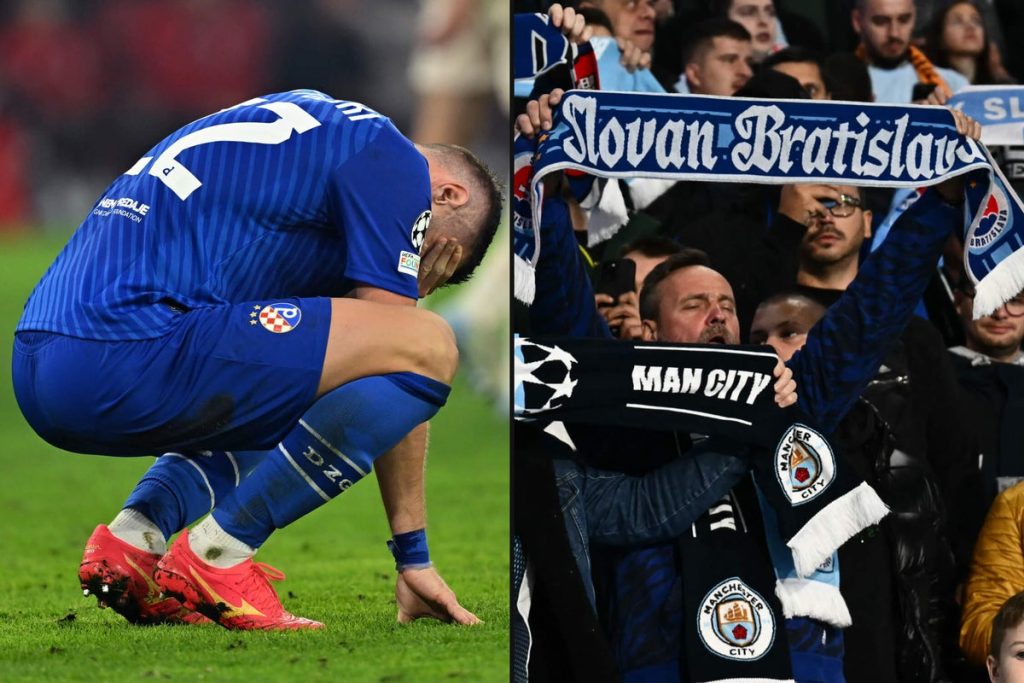The Champions League, often seen as a field where underdogs can shine, has recently warped into a venue for the wealthy clubs’ dominance. Teams like Dinamo Zagreb, Red Bull Salzburg, Celtic, Red Star Belgrade, Slovan Bratislava, and Young Boys, despite their dominance in their domestic leagues, have struggled immensely on the European stage. These teams have a combined goal difference of -37 from 12 Champions League matches this season, indicating the vast disparity between their domestic prowess and their international performance. This is largely due to the discrepancy in financial capabilities, as teams like Manchester City, Real Madrid or Bayern Munich can spend colossal sums on players, dwarfing the budgets of these smaller clubs.
The harsh reality of this financial handicap was evident in Slovan Bratislava’s clash against Manchester City on Matchday Two of the Champions League. Despite Slovan’s consistent domestic success, Manchester City, who had a massive budget difference, overpowered them with ease. “Honestly, this was just as we expected,” a fan said after the match, highlighting the expectation of defeat against financially superior teams. He added that the eight matches would be a lesson for the players, the owners, and an economic boost through income from TV and matchday sales.
However, not every Champions League ‘minnow’ is content with just participating. Red Bull Salzburg, for instance, is growing weary of their undesirable results. They’ve started their Champions League campaign on a disastrous note, with heavy defeats to Sparta Prague and French debutants Brest. Similarly, Young Boys, despite their Swiss Super League being on par with Austria’s Bundesliga, were humiliated by Aston Villa and Barcelona, adding to their domestic woes.
Meanwhile, Croatian champions Dinamo Zagreb also suffered one of the most severe defeats in Champions League history, losing 9-2 against Bayern Munich. This defeat resulted in the departure of then-manager Sergej Jakirovic, whose successor Nenad Bjelica managed a more respectable 2-2 draw against Monaco. For Celtic, the Scottish side’s fortunes in the competition seem largely determined by their venue. On home turf, they’ve managed impressive victories, but their away form has been abysmal. Despite this, manager Brendan Rodgers remains reluctant to change Celtic’s approach to these games.
Such poor results on the European stage create a disheartening experience for travelling fans. Celtic fans especially, given their club’s rich Champions League history, expressed their dismay at the lack of success and the financial toll of following their team abroad. “It’s pretty demoralising,” lamented one fan, highlighting the effect of the club’s lacklustre performances across the continent. There’s a growing concern that the widening financial gap between powerhouses and smaller clubs will only exacerbate the issue.
Ultimately, the current state of the Champions League seems to favor the affluent. The early results in the expanded 36-team ‘league phase’ indicate an increasing disparity on the pitch, with high-margin victories becoming more frequent. The larger first phase allows for more aggressive play, but the financial imbalance across Europe could lead to more one-sided matches. Consequently, fans of the competition’s relative minnows may fear rather than anticipate their future continental adventures.


